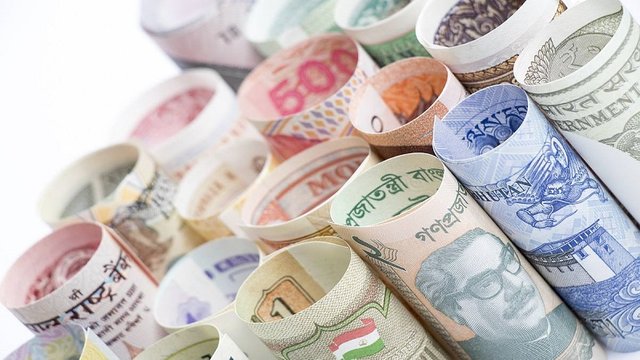The History of Forex
Foreign exchange events affecting the whole history

Through Dayyfx, research
Many factors that make the foreign exchange market so interesting are the potential themes of the market itself. From a basic point of view, there are geopolitics, government, society, macroeconomics, and a large number of actors with very different goals and methods. Throughout history, we have seen significant events in these themes that have greatly affected the foreign exchange trading environment. Here are some highlights of five influential events.
Bretton Woods Agreement
The first major change, the Bretton Woods Agreement, took place at the end of the Second World War. The United States, Great Britain and France met at the United Nations Monetary and Financial Conference in Bretton Woods, New Hampshire, to shape a new global economic order. The reason for choosing this location is that the United States was the only country without war. Most of the main European countries are chaotic. In fact, after World War II, after World War II, the United States jumped the renminbi from a failed currency to a benchmark currency. The Bretton Woods Agreement is designed to create a stable environment, and the global economy can restore itself. It has also established monetary links with the International Monetary Fund (IMF) to stabilize the global economic situation. Although the Bretton Woods Accord lasted until 1971, it failed, but it did accomplish what its charter had to do - to restore economic stability. In Europe and Japan.
The beginning of the free floating system
The Bretton Woods Accord reached the Smithsonian Accord in December 1971, which was similar, but allowed greater exchange rate volatility. 1972, the European community is trying to get rid of its dependence on the US dollar. The European Union was subsequently established by West Germany, France, Italy, Holland, Belgium and Luxemburg. The two agreements all made mistakes similar to the Bretton Woods Agreement and collapsed in 1973. These failures have led to official changes in the free floating system.
Square agreement
Traders are not aware of the possibility of profit in this new currency trading world. Even if the government intervened, there is still a strong degree of volatility. Where there is volatility, there is profit. Ten years after the fall of Bretton Woods, this became clear. The US economy is booming, but the dollar is rising too fast and too fast. The debt of the United States crushed the debt of the third world country and shut down American factories because they could not compete with foreign competitors. In 1985, the world's most powerful economies - the United States, Great Britain, France, West Germany and Japan - sent delegates to the Plaza Hotel in New York for secret meetings. The news of the meeting leaked, forcing G-5 to issue a statement encouraging the appreciation of non dollar currencies. This is known as the Plaza Accord, and its response has caused a sharp fall in the US dollar.
Establishment of Euro
After World War II, many treaties were formulated in Europe to bring closer ties to the countries of the region. There is no more than the 1992 Maastricht Treaty, the Dutch conference held in the city. The treaty established the European Union (EU), created the euro, and created a cohesive whole, including foreign policy and security initiatives. The treaty has been revised several times, but the formation of the euro has brought obvious benefits to European banks and enterprises, that is, eliminating exchange rate risks in the context of economic globalization.
Online trading
In the 1990s, the money market was more complex and faster than ever, because money and how people perceived and used it were changing. Sitting alone at home, one can find the exact price by pressing a button, requiring a group of traders, brokers and telephones just a few years ago. The progress of these communications came at a time when the former division of labor gave way to capitalism and globalization (the fall of the Berlin Wall and the Soviet Union).
Everything has changed in the foreign exchange market. Previously closed currencies in the totalitarian political system could be traded. Emerging markets (such as Nanyang) are booming, attracting capital and currency speculation.
1944, the history of the foreign exchange market has shown a typical example of a free market. Competitive forces have created an unmatched market for liquidity. Spreads have fallen sharply with the increasing competition among trusted participants. A large number of individuals can now use the same electronic communication network used by international banks.